#Tullio Pinelli
Text

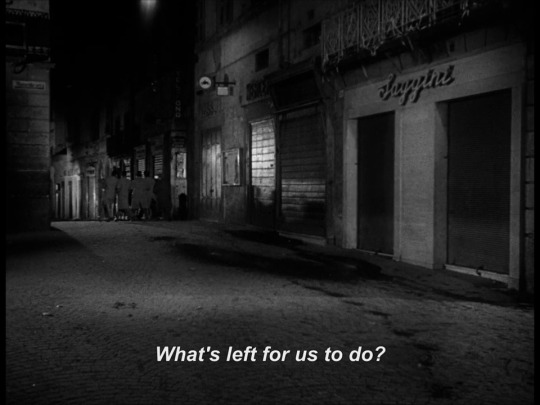

I vitelloni, 1953
66 notes
·
View notes
Text
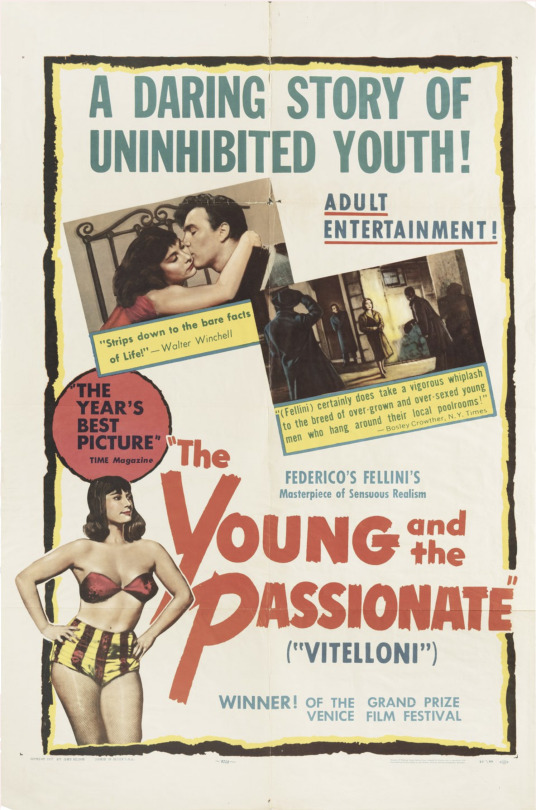
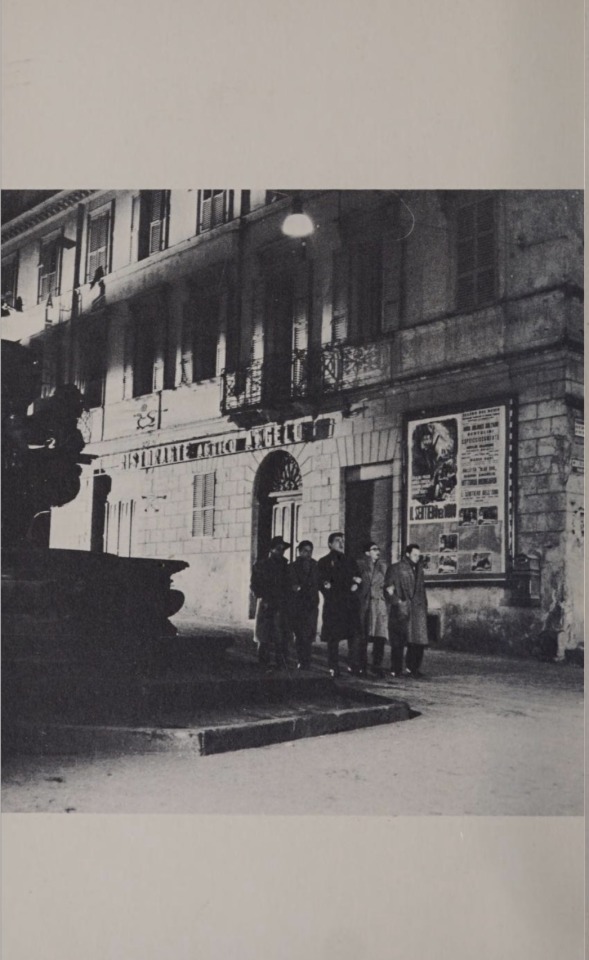

Three screenplays: I vitelloni. Il bidone. The temptations of Doctor Antonio, Federico Fellini, New York, Orion Press, 1970.
#movie#film#motion picture#Italian movie#Italian film#Italian motion picture#cinema#Italian cinema#screenplay#film script#I vitelloni#Federico Fellini#Italian comedy#Italian drama#Ennio Flaiano#Tullio Pinelli#foreign film#international movie#script excerpt#screenplay excerpt#movie poster#film poster
0 notes
Text
Lovers and Liars (1979)

It’s been a while since I’ve hated a movie as much as Lovers and Liars. Poorly edited, never funny, badly written and dated, I'm almost sure the movie itself was an afterthought and the real objective was to give Goldie Hawn an Italian vacation.
When Guido Massacesi (Giancarlo Giannini) learns his father has become gravely ill, he decides to go visit… but the womanizer refuses to travel alone. After her friend rejects his advance, American actress Anita (Hawn) decides to join him.
Two corpses stuffed into a barrel would have more chemistry than Hawn and Giannini do, which on its own is enough to doom this screwball comedy. Maybe it’s an Italian thing but there’s nothing to like about the male lead. He's married with a son but inviting them to join him as he goes to visit his father - perhaps for the last time - never crosses his mind. The trip is first and foremost an opportunity for Guido to see his mistress again. Is that supposed to be funny? At her apartment, we see first-hand how creepy this man gets. He spots his mistress naked in bed, undresses, slides under the sheets and starts pawing her like he's Brock Turner. She screams and kicks him out, which Anita finds irresistible. They go on the road together through some would-be hysterical adventures. After a while, she falls asleep. That’s Guido’s cue to start putting the moves on her. When Anita eventually agrees to his advances, you’ll want to barf.
You’d have to be a comedy scientist to recognize the pathetic, misshapen gags as they limply hobble by. In a small scenic town, everything is closed because it isn’t tourist season. Guido and Anita can’t get a cab! That’s it. That’s the joke. It’ll have you begging for a fart or crotch shot.
Scenes often end in a way that makes you wonder if you missed something, or if there isn’t a reel missing. I’ve read the picture originally ran around the two-hour mark. My version on VHS lasted 96 minutes. The missing scenes would explain why so much of the film was choppy and abrupt but this was torture at an hour and a half. Any more and my mind would’ve snapped.
Lovers and Liars is particularly frustrating because it gives you absolutely nothing. Some bad movies give you hours' worth of material to talk about. Others make you angry in a myriad of ways or provide entertainment in ways that weren’t intended. This? It’s a struggle to sit through and the effort needed to explain why you shouldn’t watch it was a chore. The sooner I forget about Lovers and Liars - and I will forget all about it - the better. (Full-screen version on VHS, June 9, 2021)

#Lovers and Liars#Movies#films#movie reviews#film reviews#mario monicelli#leonardo benvenuti#piero de bernardi#tullio pinelli#paul d. zimmerman#goldie hawn#giancarlo giannini#claudine auger#laura betti#aurore clement#andrea ferreol#1979 movies#1979 films
0 notes
Text
Arancia Studio announces an original graphic novel based on Legendary Director Federico Fellini’s Story, Napoli-New York
Arancia Studio announces an original graphic novel based on Legendary Director Federico Fellini’s Story, Napoli-New York #comics #comicbooks #graphicnovel
Arancia Studio has announced Napoli-New York, an original graphic novel written by French acclaimed writer Jean-David Morvan, based on the film manuscript of the same name by revered director Federico Fellini. The project was one of the last works from the legendary Italian director and was co-written by Opium Den writer Tullio Pinelli.
Napoli-New York is a fictional story based on historical,…
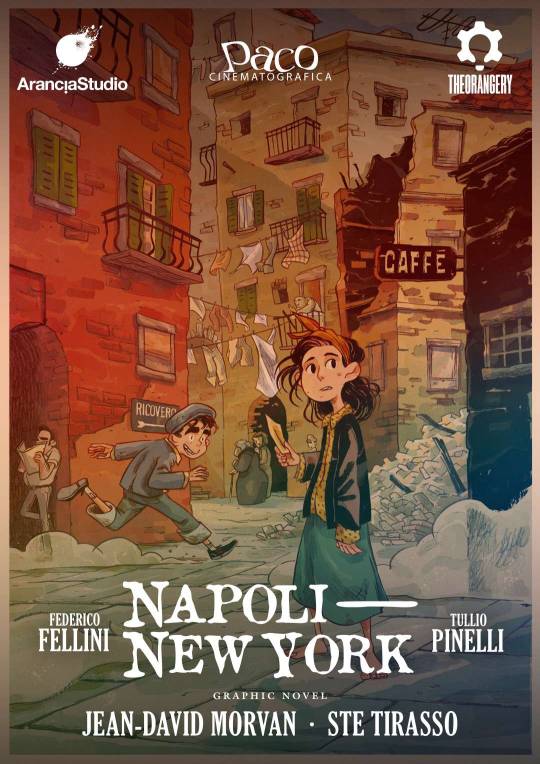
View On WordPress
#arancia studio#federico fellini#graphic novel#graphic novels#jean-david morvan#napoli new york#paco cinematografica#ste tirasso#theorangery#tullio pinelli
0 notes
Photo
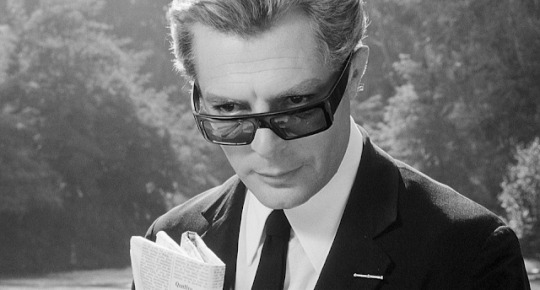
Marcello Mastroianni in 8 1/2 (Federico Fellini, 1963)
Casti: Marcello Mastroianni, Claudia Cardinale, Anouk Aimée, Sandra Milo, Rossella Falk, Barbara Steele, Madeleine Lebeau, Eddra Gale, Guido Alberti, Jean Rougeul. Screenplay: Federico Fellini, Ennio Flaiano, Tullio Pinelli, Brunello Rondi. Cinematography: Gianni Di Venanzo. Production design: Piero Gherardi. Film editing: Leo Catozzo. Music: Nino Rota.
At one point in 8 1/2 an actress playing a film critic turns to the camera and brays (in English), "He has nothing to say!", referring to Guido Anselmi, the director Marcello Mastroianni plays, and by extension to Fellini himself. And that's quite true: Fellini has nothing to say because reducing 8 1/2 to a message would miss the film's point. Guido finds himself creatively blocked because he's trying to say something, except he doesn't know what it is. He has even enlisted a film critic (Jean Rougeul) to aid him in clarifying his ideas, but the critic only muddles things by his constant monologue about Guido's failure. Add to this the fact that after a breakdown Guido has retreated to a spa to try to relax and focus, only to be pursued there by a gaggle of producers and crew members and actors, not to mention his mistress and his wife. Guido's consciousness becomes a welter of dreams and memories and fantasies, overlapping with the quotidian demands of making a movie and tending to a failed marriage. He is also pursued by a vision of purity that he embodies in the actress Claudia Cardinale, but when they finally meet he realizes how impossible it is to integrate this vision with the mess of his life. Only at the end, when he abandons the project and confronts the fact that he really does have nothing to say, can he realize that the mess is the message, that his art has to be a way of establishing a pattern out of his own life, embodied by those who have populated it dancing in a circle to Nino Rota's music in the ruins of the colossal set of his abandoned movie. The first time I saw this film it was dubbed into German, which I could understand only if it was spoken slowly and patiently, which it wasn't. Even so, I had no trouble following the story (such as it is) because Fellini is primarily a visual artist. Besides, the movie starred Mastroianni, who would have made a great silent film star, communicating as he did with face and body as much as with voice. It is, I think, one of the great performances of a great career. 8 1/2 is also one of the most beautiful black-and-white movies ever made, thanks to the superb cinematography of Gianni Di Venanzo and the brilliant production design and costumes of Piero Gherardi.
9 notes
·
View notes
Text



#ProyeccionDeVida
🎥 Kino Cat / Cine Tulipán, presenta:
🎬 “Ocho y medio” [8½ (Otto e mezzo)]
🔎 Género: Drama / Comedia / Cine dentro del cine / Surrealismo / Película de culto

⏰ Duración: 140 minutos
✍️ Guión: Tullio Pinelli, Federico Fellini, Ennio Flaiano y Brunello Rondi
🎼 Música: Nino Rota
📷 Fotografía: Gianni Di Venanzo

🗯 Argumento: Después de obtener un éxito rotundo, un director de cine atraviesa una crisis de creatividad e intenta inútilmente hacer una nueva película. En esta situación, empieza a pasar revista a los hechos más importantes de su vida y a recordar a todas las mujeres a las que ha amado.
👥 Reparto: Marcello Mastroianni (Guido Anselmi), Claudia Cardinale (Claudia), Anouk Aimée (Luisa Anselmi), Sandra Milo (Carla), Barbara Steele (Gloria Morin), Rossella Falk (Rossella) y Gilda Dahlberg (Journalist's Wife)

📢 Dirección: Federico Fellini
© Productoras:Cineriz & Francinex
🌏 Países: Italia-Francia
📅 Año: 1963

📽 Proyección:
📆 Martes 20 de Agosto
🕘 9:15pm.
🐈 El Gato Tulipán (Bajada de Baños 350 – Barranco)
🚶♀️🚶♂️ Ingreso libre
0 notes
Text

CINE
El jardín de los Finzi Contini (1970)
Título original: Il giardino dei Finzi-Contini
Italia
Dirección: Vittorio De Sica
Idioma: Italiano con Subtítulos en Español
Atención: Solo para ver en PC o Notebook
Para ver el Film pulsa el Link:
https://artecafejcp.wixsite.com/escenario-cafejcp/post/el-jardin-de-los-finzi-contini-1970
Reparto: Ugo Pirro, Vittorio Bonicelli, Vittorio De Sica,
Franco Bursati, Alain Katz, Tullio Pinelli, Cesare Zavattini
Género: Drama | Histórico. Años 30
SINOPSIS:
Finales de los años treinta, Italia. Los Finzi Contini
son una de las familias más influyentes de Ferrara: ricos,
aristocráticos y judíos. Sus hijos, ya adultos, Micol y
Alberto, tratan de crear un restringido círculo de
amistades para poder jugar al tenis y celebrar fiestas,
pero viven ajenos al mundo que los rodea. En ese círculo
entra Giorgio, un judío de clase media que se enamora de
Micol. Ella parece divertirse a su costa; incluso hace
el amor con uno de sus amigos cuando sabe que Giorgio
los está espiando. Al mismo tiempo que tienen lugar
estos juegos sentimentales, el fascismo aprueba leyes
que afectarán dramáticamente a los Finzi Contini. Drama
basado en la novela homónima de Giorgio Bassani.
Críticas:
Interesante cinta del gran Vittorio de Sica, no es de sus mejores trabajos, pero tiene su sello inconfundible, tiene sus obsesiones por un mundo en decadencia que no se da por enterado que se encuentra en el ocaso y también posee los amores enfermizos que producen asfixia. En esta obra retrata a un universo marchito, una sociedad que está a punto de caer en las fauces del demonio del fascismo de Mussolini. Cuenta la historia de una familia de ricos judíos, con dos hijos que viven en una mansión, con un gran jardín que da nombre al film, la hija mantiene una relación con dos amigos del pueblo, relación enfermiza, angustiosa, juega con ellos como con dos títeres en medio de un clima de opresión hacia los judíos que les va llegando poco a poco. Lo más destacable de las interpretaciones ha sido Dominique Sanda que está maravillosa en su papel de manipuladora, es una belleza cautivadora y turbadora. Recomendable para los que gusten del cine de Vittorio de Sica. Fuerza y honor!!!
-Rafael Uriaga: Diario Universal
Premios:
1971: Oscar: Mejor película de habla no inglesa. 2 nominaciones
1971: Festival de Berlín: Oso de Oro, Premio Interfilm - Otto Dibelius
1972:Premios BAFTA: Nominada a Mejor fotografía
1970: Premios David di Donatello: Mejor película (ex-aequo)
1971: Asociación de Críticos Norteamericanos (NBR): Nominada a Mejores películas
Café Mientras Tanto
jcp
0 notes
Link
0 notes
Video
youtube
Ginger e Fred Official Trailer #1 - Marcello Mastroianni Movie (1986)
TONINO GUERRA
Federico Fellini2 BALLERINI: QUANDO SI SEPARERANNO L UOMO ANDRA' IN MANICOMIOSoggetto Federico Fellini, Tonino Guerra.
Sceneggiatura Federico Fellini, Tonino Guerra, Tullio Pinelli
Produttore Alberto Grimaldi
Fotografia Tonino Delli Colli, Ennio Guarnieri
Montaggio Nino Baragli, Ugo De Rossi, Ruggero Mastroianni
Effetti speciali Adriano Pischiutta
Musiche Nicola Piovani
Scenografia Dante Ferretti
Trucco Amedeo Alessi
Interpreti e personaggi
Giulietta Masina: Amelia Bonetti/Ginger
Marcello Mastroianni: Pippo Botticella/Fred
Franco Fabrizi: Aurelio, il presentatore
Ezio Marano: scrittore
Totò Mignone: Totò
Jacques Henri Lartigue: Frate Gerolamo
Augusto Poderosi: Evelina Pollini
Friedrich von Ledebur: ammiraglio Aulenti
Friedrich von Thun: Armando Bissanti
Antonino Iuorio: ispettore di produzione
Fabrizio Fontana: Floris Tartarina
Barbara Scoppa: Barbara, giornalista di gossip
Elisabetta Flumeri: giornalista
Claudio Botosso: giornalista nello studio televisivo
Salvatore Billa: Clark Gable
Leonardo Petrillo: Marcel Proust
Daniele Aldrovandi: Marty Feldman
Eolo Capritti: Telly Savalas
Ginestra Spinola: chiromante
Sergio Ciulli: figlio della chiromante
Elena Cantarone: infermiera
Alex Partexano: marinaio
Stefania Marini: Stefania
Roberto Accornero: autista pulmino
Francesco Casale: Catanzaro, il mafioso
Rosario Galli: Angelo
Stefano Gragnani: De Nittis
Ennio Antonelli: il facchino
Giorgio Juorio: Salvatore
Gianfranco Alpestre: avvocato rapito
Franco Marino: impresario nani
Davide Marotta: un nano
Ivano Marescotti: un uomo del presidente
Doppiatori originali
Alberto Lionello: presentatore Tv
Gianni Bonagura: Totò
Mario Maranzana: Frate volante
Corrado Gaipa: L'ammiraglio Aulenti
Marco Bresciani: Travestito
Oreste Lionello: presidente della rete televisiva, Woody Allen, scrittore
Claudio Capone: un intervistatore
Enzo Liberti: cameriere
Pino Ammendola: onorevole Tartina
Pino Insegno: cameriere
Oreste Rizzini: presidente TV
Solvejg D'Assunta: signora Silvestri, attrici, donna con corona
Carlo Croccolo: signor Guadascone, frate guardiano
Mario Maranzana: frate Gerolamo
Piero Tiberi: Angelo HD
0 notes
Text
0 notes
Text
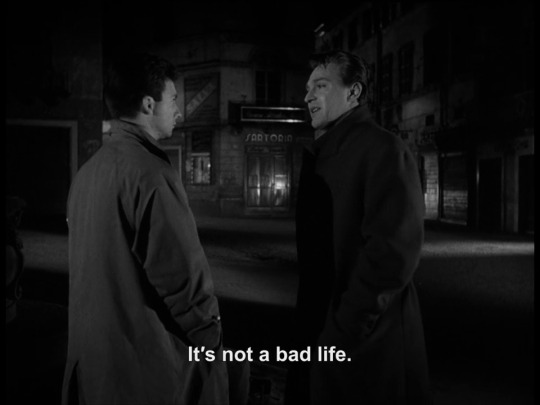
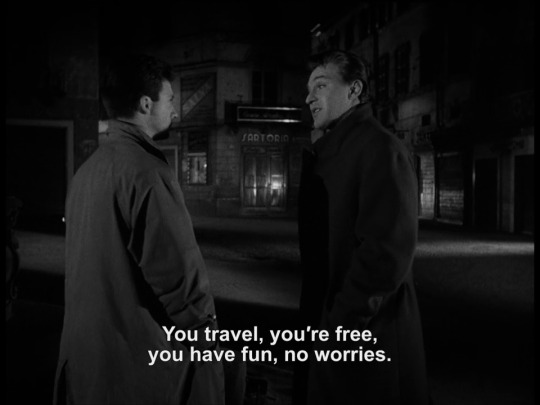
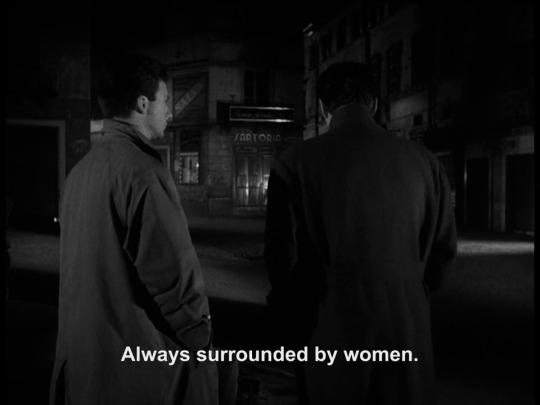
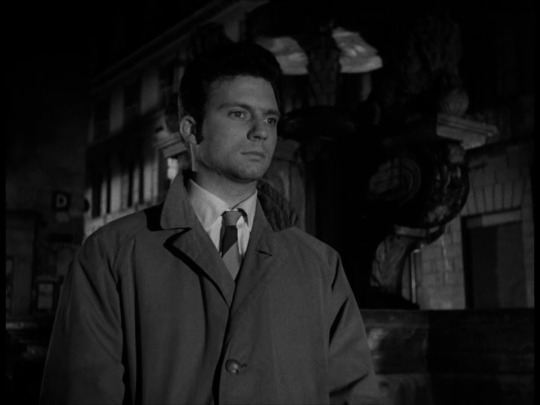

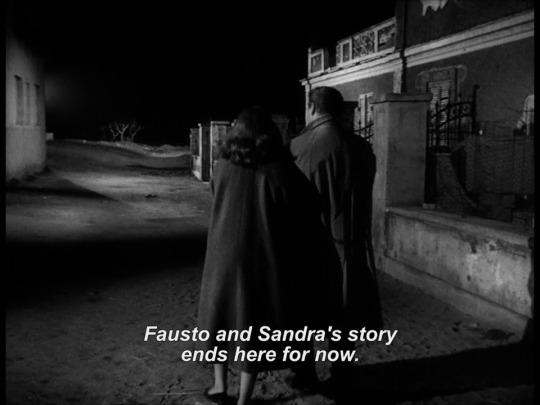
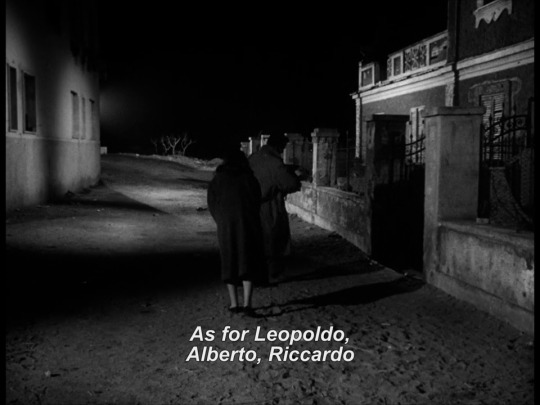
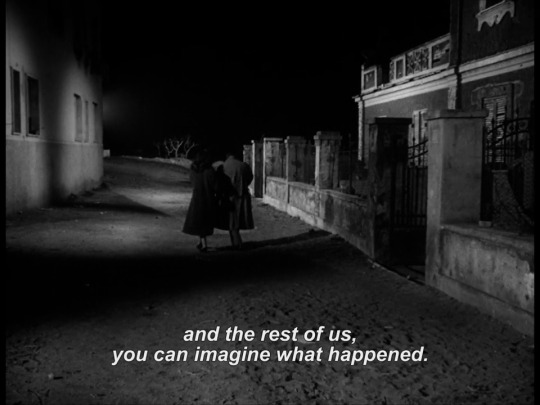
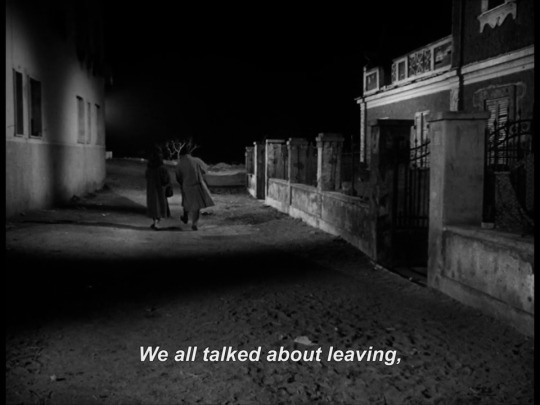
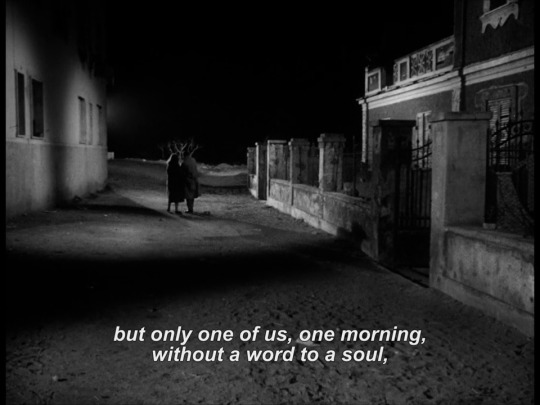
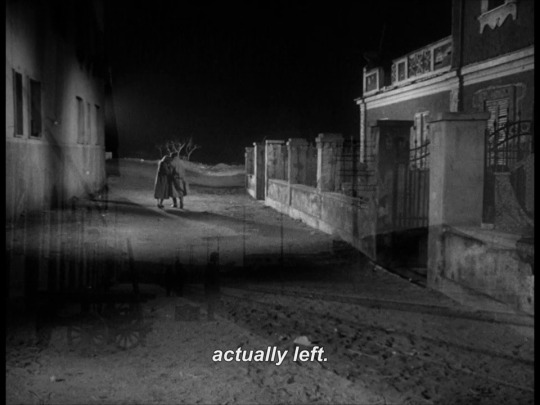
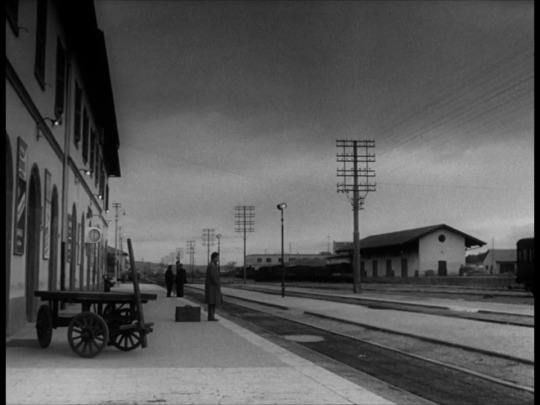
I vitelloni, 1953
#comedy#drama#i vitelloni#the young and the passionate#federico fellini#ennio flaiano#tullio pinelli#franco fabrizi#leonora ruffo#franco interlenghi#journey
5 notes
·
View notes
Photo

SLYTHERIN: "Even the most miserable life is better than a sheltered existence in an organized society where everything is calculated and perfected." –Federico Fellini + Ennio Flaiano + Tullio Pinelli + Brunello Rondi (Steiner: La Dolce Vita)
#harry potter#house quotes#slytherin#la dolce vita#steiner#federico fellini#ennio flaiano#tullio pinelli#brunello rondi#hphq
118 notes
·
View notes
Photo










L'amore in città (1953).
#l'amore in città#l'amore in città (1953)#love in the city#love in the city (1953)#gianni di venanzo#eraldo da roma#gianni polidori#michelangelo antonioni#federico fellini#alberto lattuada#carlo lizzani#francesco maselli#dino risi#cesare zavattini#aldo buzzi#luigi chiarini#luigi malerba#tullio pinelli#luigi vanzi#vittorio veltroni#marco ferreri
88 notes
·
View notes
Photo

- I am ignorant, but I read books. You won't believe it, everything is useful... this pebble for instance.
- Which one?
- Anyone. It is useful.
- What for?
- For... I don't know. If I knew I'd be the Almighty, who knows all. When you are born and when you die... Who knows? I don't know for what this pebble is useful but it must be useful. For if its useless, everything is useless. So are the stars!
La strada, Federico Fellini (1954)
#Federico Fellini#Tullio Pinelli#Anthony Quinn#Giulietta Masina#Richard Basehart#Aldo Silvani#Marcella Rovere#Livia Venturini#Otello Martelli#Nino Rota#Leo Catozzo#1954
7 notes
·
View notes
Photo
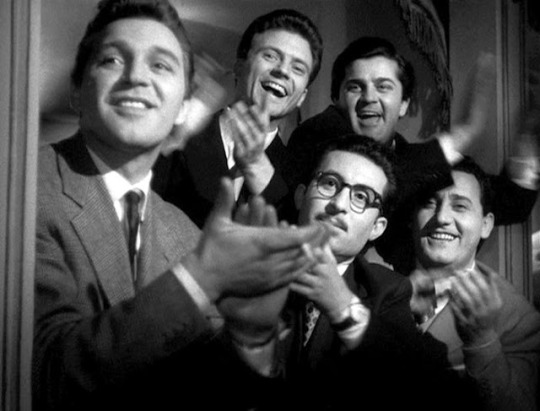
Franco Fabrizi, Franco Interlenghi, Leopoldo Trieste, Riccardo Fellini, and Alberto Sordi in I Vitelloni (Federico Fellini, 1953)
Cast: Franco Interlenghi, Alberto Sordi, Franco Fabrizi, Leopoldo Trieste, Riccardo Fellini, Leonora Ruffo, Jean Brochard, Achille Majeroni, Guido Martufi. Screenplay: Federico Fellini, Ennio Flaiano, Tullio Pinelli. Cinematography: Carlo Carlini, Otello Martelli, Luciano Trasati. Production design: Mario Chiari
Film editing: Rolando Benedetti. Music: Nino Rota.
The international success of I Vitelloni launched Federico Fellini's directing career after the comparative failures of Variety Lights (1951), which he co-directed with Alberto Lattuada, and The White Sheik (1952), his first solo directing effort. It also earned him an Oscar nomination for screenwriting, which he shared with Ennio Flaiano and Tullio Pinelli. It's certainly one of his most endearing early films, made before his familiar mannerisms set in -- though there are glimpses of those in the tawdry theatrical sequence with the grotesque aging actor played by Achille Majeroni (a part that Fellini tried to persuade Vittorio De Sica to play). But somehow it has taken me several viewings over the years to fully appreciate it. I think that's because Fellini's greatest films have a strong central character -- usually played by Giulietta Masini or Marcello Mastroianni -- to hold the narrative together. I Vitelloni is by definition and title an ensemble picture, but it's also the first of Fellini's excursions into himself, concluding with the Fellini surrogate, Moraldo Rubini (Franco Interlenghi) boarding a train that will take him away from the idlers of his provincial home town -- and presumably to Rome, where he will become the jaded Marcello Rubini of La Dolce Vita (1960) and the blocked director Guido Anselmi of 8 1/2 (1963). The problem is that the character of Moraldo isn't written strongly enough or given enough substance by the actor: Interlenghi, who was discovered by Roberto Rossellini and cast in Shoeshine (1946), had a long career in films and TV in Italy, but the part in I Vitelloni demands someone with more charisma -- a young Mastroianni, in short. Moraldo is overshadowed by the womanizing Fausto (Franco Fabrizi) and by the comic figures of Alberto (Alberto Sordi) and Leopoldo (Leopoldo Trieste). The scenes that should develop Moraldo as a central figure don't quite work, particularly the early-morning encounters with Guido (Guido Martufi), a boy on his way to work at the railroad station -- a sharp counterpoint to the idling vitelloni. "Are you happy?" Moraldo asks the boy. "Why not?" he replies. The exchange seems designed to undercut the frenetic strivings and complaints of the vitelloni, who chafe against the boredom and provinciality of the town, but don't seem to be able to muster enough resolve to do something about it, instead continuing to pursue phantoms of creative or sexual success. The trouble with the Moraldo-Guido scenes is that they come out of nowhere narratively -- and even have oddly uncomfortable (and probably unintended) hints of pedophilia on Moraldo's part. Nor do they satisfactorily set up the film's ending: Moraldo departs and we see Guido walking along the train tracks, the former facing up to the uncertain future, the latter heading comfortably back into his routine. Still, it's a film held together by the score by Fellini's great collaborator Nino Rota, and filled with the boundless energy that often rescued Fellini from his worst impulses.
#I Vitelloni#Federico Fellini#Franco Fabrizi#Franco Interlenghi#Leopoldo Trieste#Riccardo Fellini#Alberto Sordi
2 notes
·
View notes